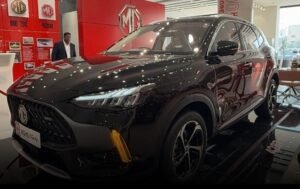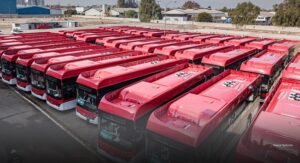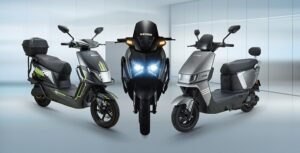

Bangladesh Bank Reduces Cash Margin Requirement for Eco-Friendly Car Imports
In a move to encourage the adoption of environmentally friendly transportation, Bangladesh Bank has announced a significant reduction in the cash margin requirement for opening Letters of Credit (LCs) for eco-friendly car imports. The new regulation, set to take effect on February 1, 2025, marks a positive shift towards the promotion of electric and hybrid vehicles in Bangladesh. This policy change comes in the wake of the global push for cleaner, more sustainable transportation solutions.
Key Changes in Cash Margin Requirement
Previously, Bangladesh Bank required a 100% cash margin for LCs for the importation of sedans, SUVs, and MPVs (multi-purpose vehicles). This policy was considered restrictive and a hindrance to the growth of the eco-friendly vehicle market in Bangladesh. However, under the updated regulation, the cash margin requirement has been slashed to 50% for these types of vehicles, making them more accessible to businesses and consumers alike.
Additionally, the bank has provided special consideration for fully electric and hybrid vehicles. The cash margin for these vehicles will now be determined based on the specific banker-customer relationship. This flexible approach is designed to encourage the import of more sustainable and energy-efficient vehicles while accommodating the varying financial conditions of businesses involved in the automotive sector.
Rationale Behind the Policy Update
This decision is aligned with Bangladesh’s growing commitment to sustainability and the global transition towards greener technologies. The new regulation supports the government’s broader goals of reducing the carbon footprint and promoting energy-efficient vehicles. As countries around the world ramp up their efforts to combat climate change, the shift towards electric vehicles (EVs) and hybrid cars is gaining momentum. By reducing the financial barriers to importing eco-friendly vehicles, Bangladesh aims to accelerate this shift within its own automotive market.
Global Trends in Eco-Friendly Transportation
Globally, the adoption of electric vehicles is on the rise. Many countries have introduced subsidies, tax incentives, and regulatory measures to make EVs more affordable and accessible. Europe, for example, is leading the way with governments offering various incentives to buyers of electric and hybrid cars. Similarly, countries like China and the United States are significantly investing in EV infrastructure and production.
In response to the global trend, Bangladesh is also beginning to recognize the importance of fostering a market for cleaner vehicles. With the reduction of the cash margin, Bangladesh Bank is taking an active role in creating a more sustainable transportation future for the country.
The Impact on the Bangladeshi Automotive Market
The reduction in cash margin requirements will likely have a number of positive effects on the automotive market in Bangladesh. The auto industry can expect a boost, as lower margins could lead to increased imports of eco-friendly vehicles. This could also stimulate the electric vehicle (EV) infrastructure in Bangladesh, with the possibility of more charging stations and increased support for hybrid vehicles.
Furthermore, the introduction of these eco-friendly cars will contribute to reducing the overall environmental impact of the transportation sector in Bangladesh. Air pollution and carbon emissions are major concerns in many urban areas, and the shift to hybrid and electric cars can significantly reduce these harmful emissions.
Future Outlook
With Bangladesh Bank’s decision to reduce the cash margin requirement, there is significant potential for the country’s automotive market to evolve in line with global trends. However, for this policy shift to be fully effective, additional government initiatives such as tax incentives, subsidies, and the development of EV infrastructure will be necessary. It is also important to foster public-private partnerships to ensure that both the supply of eco-friendly vehicles and the demand from consumers continue to grow.
In the coming years, it is expected that more automakers will focus on introducing electric and hybrid models tailored to the needs of the Bangladeshi market. The reduction in the cash margin requirement is just the beginning of a broader shift towards a more sustainable and energy-efficient future for Bangladesh.
The reduction in the cash margin requirement for eco-friendly car imports by Bangladesh Bank is a step forward in promoting sustainable transportation. By making it easier and more affordable to import electric and hybrid vehicles, Bangladesh is aligning itself with global efforts to reduce carbon emissions and combat climate change. This policy change is a win for both the automotive industry and the environment, paving the way for a cleaner, greener future for the country.
As the global shift towards eco-friendly vehicles continues to accelerate, Bangladesh’s automotive sector is well-positioned to embrace this change, provided that the right policies and infrastructure continue to be developed in the years ahead.
Afsheen Gohar is a seasoned writer with a wealth of experience in crafting authentic and well-researched articles. Her dedication to delivering high-quality content is evident in her work, where she combines a passion for storytelling with a commitment to accuracy and depth. Afsheen’s writing reflects her ability to engage readers with compelling narratives while providing valuable insights on a diverse range of topics.
Add a comment Cancel reply
Categories
- Auto News (937)
- Bike Launches (25)
- Car Launches (54)
- Car Prices (34)
- Car Reviews (9)
- Easy Installments (69)
- Electric Vehicle (49)
- Electronic Bikes (41)
- Motorcycle Prices (9)
- Motorcycle Reviews (7)
- Other News (39)
- Uncategorized (43)
Recent Posts
Popular Tags
Related posts


Islamabad Traffic Police Deploy Drones to Monitor Highways and Enforce Traffic Laws

Sindh Government to Roll Out 1,000 Electric Buses in Karachi

Metro Bus Services Partially Suspended in Rawalpindi, Islamabad, and Karachi for Ashura Security
Welcome to Auto Power, Pakistan’s premier destination for motorcycles, scooties, and electric bikes. Additionally, our website keeps you updated with the latest news from the auto sector, ensuring you stay informed about the newest trends, releases, and advancements in the industry.
- Shop No 05 & 06, Ruby Arcade, A.M.20, Frere Road/Off Akbar Road, Karachi.
- Shop Timings 11:00 AM to 8:30 PM
- 0322-2578859 | 021-32717777
- sales@autopower.com.pk
- Shop No 05 & 06, Ruby Arcade, A.M.20, Frere Road/Off Akbar Road, Karachi.
- (+92) 322-2578859
- sales@autopower.com.pk
Latest News
- All Posts
- Auto News
- Bike Launches
- Car Launches
- Car Prices
- Car Reviews
- Easy Installments
- Electric Vehicle
- Electronic Bikes
- Motorcycle Prices
- Motorcycle Reviews
- Other News
- Uncategorized






© 2025 AutoPower All Rights Reserved.






